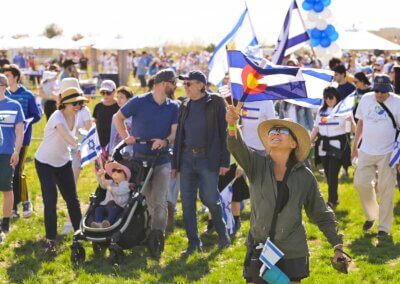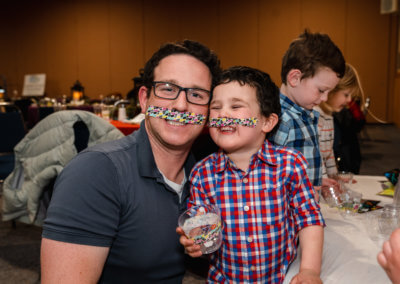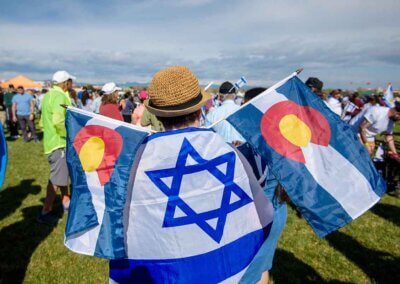Shabbat Shalom: Marathon Man
Dear JEWISHcolorado family,
The analogy of a marathon keeps coming up when writers and commentators speak of the COVID-19 pandemic. And I keep asking myself, have these people ever run a marathon?
I’ve now run three, and I can tell you with some certainty that this is nothing like running a marathon. For someone like me—a Sunday athlete who is in good, but far from elite, shape—it is an intensely painful experience. Adrenaline makes the first ten miles enjoyable. Camaraderie makes the next nine tolerable. But somewhere between mile 19 and mile 26, the experience becomes a battle between the will and the body. And, I suppose, in this respect the marathon analogy is apt for anyone who has contracted COVID-19 and endured the kind of physical suffering caused by the severest form of the virus. My heart goes out to those individuals and their caretakers alike.
If there is a COVID-19 metaphor that is more closely analogous to what this experience has been like for most of us, it’s not a marathon; it’s the training that precedes it.
The analogy of a marathon keeps coming up when writers and commentators speak of the COVID-19 pandemic. And I keep asking myself, have these people ever run a marathon?
I’ve now run three, and I can tell you with some certainty that this is nothing like running a marathon. For someone like me—a Sunday athlete who is in good, but far from elite, shape—it is an intensely painful experience. Adrenaline makes the first ten miles enjoyable. Camaraderie makes the next nine tolerable. But somewhere between mile 19 and mile 26, the experience becomes a battle between the will and the body. And, I suppose, in this respect the marathon analogy is apt for anyone who has contracted COVID-19 and endured the kind of physical suffering caused by the severest form of the virus. My heart goes out to those individuals and their caretakers alike.
If there is a COVID-19 metaphor that is more closely analogous to what this experience has been like for most of us, it’s not a marathon; it’s the training that precedes it.
Training requires more consistency than talent, more grit than muscle. Training is a holistic affair: not just a regular running schedule, but the right runs in the right order, the right kind of stretching after each run, the right diet, the right amount of sleep, and the right amount of hydration. For me, the ability to sustain the required regimen was fundamentally dependent upon camaraderie. And therein lies the power of the analogy.
My family and friends knew I was training for a marathon. They, along with my running partner, supported me when I felt weak and shared my joy as I became stronger. They all contributed in some way, whether they fed me or feted me or filled in for me when my runs got longer. I was—every grueling step of the way—running with others.
None of us know how far into this new normal we are, which mile marker we’re at. What is clear is that it will be a test of endurance. So endure with friends. Find people to feed you, fete you, and fill in for you when you need to rest. Seek out camaraderie and support. If you or someone you know needs help, call us or email help@jewishcolorado.org.
Take time to rest, not just your body but your mind and your soul. Change your media diet. Unplug from the constant electronic stream of data and statistics.
In the middle of this week’s Torah portion, Emor, we are reminded again to rest: “It is a sacred holiday to God, when you shall do no work. Wherever you may live, it is God’s Sabbath.”
Rest well.






